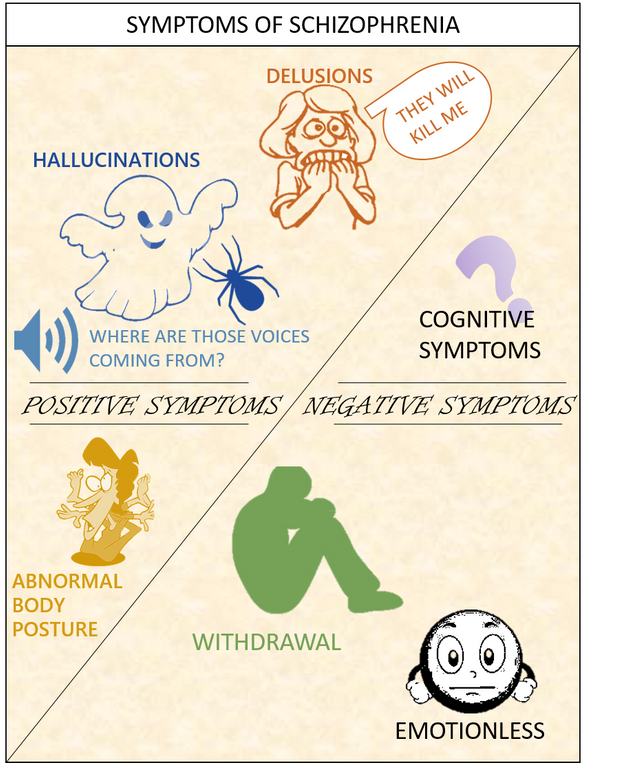
Schizophrenia is a state of psychosis. By definition, psychosis is a mental disorder characterized by disconnection from reality. So what causes schizophrenia? Several lines of evidence indicate that schizophrenia is a disorder of abnormal dopamine signalling.
SYMPTOMS OF SCHIZOPHRENIA

So how big is the gulf between how you experience the world and how a schizophrenic does? The answer involves understanding the concept of salience (how important the information is). Here are some random numbers:

Chances are, you did not pay much attention. But if I say that these are the numbers from tomorrow’s winning lottery ticket, the salience of the information is increased, and your brain is alerted. Take random “work from home” advertisements for example – you may not care much about it; but for someone unemployed, it may carry a lot of importance.
We process a vast amount of information every day. And our brains being the nice sincere machines that they are separate and segregate the information throughout the day and we only pay attention to things that are important to us, such as remembering to carry the umbrella after seeing a weather forecast.
So how does this relate to schizophrenia?
The central role of dopamine is to mediate the “salience” of environmental events and internal representations. In a brain with irregular and illogical excessive production of dopamine, there is an aberrant assignment of salience to one’s experiences. It’s like every information you take in has the potential to make you a million dollars or life and death consequences.
"Dopamine is the wind of the psychotic fire"
-Abi-Dargham
Soon enough, patients begin to ask themselves: “Why now. Why me. Why does this seem important?” To make sense of the information, they begin to develop explanations for why each of this information seems so important, so relevant and so personally significant.
If they happen to watch some crime channel in a state of aberrant salience, they may believe that the FBI is out to get them. If their spouse goes to the supermarket to get some eggs, they must be cheating on them. If they see a weather forecast, they may believe that they have discovered how the world will end because of things only they understand.
To an outside observer, these ideas come across as crazy. But for a person in a state of aberrant salience, these conclusions help them to make sense of a senseless mental environment overpowered by dopamine.
We have about 60,000 thoughts every day. What happens when aberrant salience is assigned to internally generated thoughts? Imagine having the volume of your thoughts turned up so high that it feels like another voice coming from somewhere else. The experience can also be referred to as hallucinations.
The end of the video may have come as a sign of relief, but for a schizophrenic, these thoughts may continue for as long as they are awake. With so much happening, it comes as no surprise that patients with schizophrenia have cognitive impairment and can become so confused even while doing daily activities.
TREATMENT
There is no cure for schizophrenia. As long as one lives, the brain will continue to produce dopamine (more so in schizophrenics), and we must continue giving antipsychotic medication, which reduces the levels of dopamine in our brain, producing a state of dampened salience. But the side effects may get so severe that patients start experiencing a whole new range of symptoms and may even discontinue the medication, bringing back the old symptoms.
If interested, watch
- I am not a monster: schizophrenia | Cecilia Mcgough | TEDxPSU
- A Beautiful mind - a movie based on the life of John Nash, a Nobel Laureate in Economics
Sources:
www.amp.slate.com/articles/health_and_science/science/2013/07/what_is_dopamine_love_lust_sex_addiction_gambling_motivation_reward
www.webmd.com/schizophrenia/schizophrenia-symptoms
www.ncbi.nlm.nih.gov/pmc/articles/PMC4780291/
www./ncbi.nlm.nih.gov/m/pubmed/12505794/